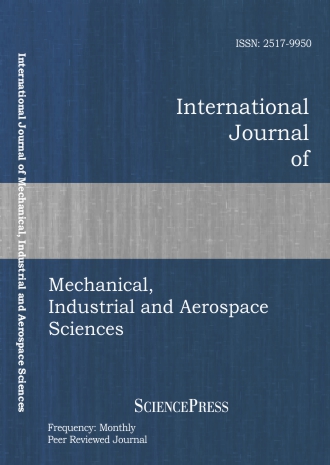
Scholarly
Volume:4, Issue: 10, 2010 Page No: 986 - 993
International Journal of Mechanical, Industrial and Aerospace Sciences
ISSN: 2517-9950
1607 Downloads
Numerical Simulation of Cavitation and Aeration in Discharge Gated Tunnel of a Dam Based on the VOF Method
Cavitation, usually known as a destructive phenomenon, involves turbulent unsteady two-phase flow. Having such features, cavitating flows have been turned to a challenging topic in numerical studies and many researches are being done for better understanding of bubbly flows and proposing solutions to reduce its consequent destructive effects. Aeration may be regarded as an effective protection against cavitation erosion in many hydraulic structures, like gated tunnels. The paper concerns numerical simulation of flow in discharge gated tunnel of a dam using ing RNG k -ε model coupled with the volume of fluid (VOF) method and the zone which is susceptible of cavitation inception in the tunnel is predicted. In the second step, a vent is considered in the mentioned zone for aeration and the numerical simulation is done again to study the effects of aeration. The results show that aeration is an impressively useful method to exclude cavitation in mentioned tunnels.
Authors:
References:
[1] S. Bernard, S. Muntean, R.F. Susan-Resiga, I. Anton, "Multiphase